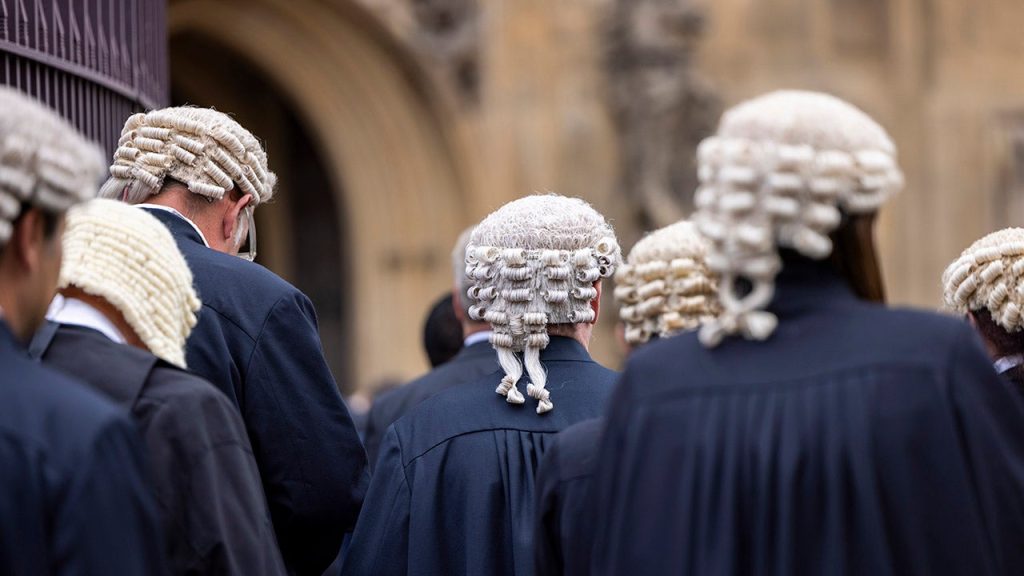Courts in the United Kingdom are currently debating the necessity of mandatory wigs for barristers, with concerns raised about the dress code requirement being “culturally insensitive.” The Bar Council, representing barristers in England and Wales, has set up a working group to consider court dress in the context of all protected characteristics, following complaints from several Black barristers that the wigs discriminate against Afro-Caribbean hair. While no decision has been made yet, judges are reviewing proposals from the Bar Council, and a decision could be expected as early as the fall.
Michael Etienne, a Black barrister with an afro hairstyle, has spoken out against the compulsory wigs, labeling them as hair discrimination and a form of racism. The wigs, traditionally made of horsehair, have not been mandatory in all courtrooms since 2007, but complaints about their insensitivity persist. Leslie Thomas KC, another Black legal professional, has called for the removal of wigs, labeling them as a “ridiculous costume” that represents a culturally insensitive environment within the legal profession. He also suggested doing away with other outdated court dress requirements, like wing collars and bands.
Some barristers have argued for religious exemptions from the wig requirement, citing the existing allowance for Sikhs to wear turbans and Muslims to wear headscarves. Rachel Bale, a mixed-race barrister with curly afro hair, has pointed out that wigs can be unfit for Black hairstyles, which are deeply tied to identity in Black culture. She suggested that a modernized dress code that includes a black gown and smart business wear underneath would be more appropriate for the 21st century. The issue has sparked public debate and discussion about diversity and inclusion in the legal profession.
The Bar Council’s working group on court dress is currently in active discussions with senior judges, with the judiciary welcoming the dialogue as part of their joint work on diversity and inclusion. While no decision has been reached yet, this ongoing conversation reflects a growing awareness and consideration of how dress codes and traditions within the legal system may be perceived as discriminatory or outdated. The issue has garnered attention both within the legal profession and the broader public, with calls for change coming from barristers of various backgrounds.
The debate over mandatory wigs for barristers in the UK has raised broader questions about representation, sensitivity, and inclusion within the legal system. The pushback against these traditional headpieces highlights the need for a modernized and culturally aware approach to court dress that respects the diverse backgrounds and identities of legal professionals. As discussions continue between the Bar Council, senior judges, and barristers from different ethnicities, there is an opportunity to create a more inclusive and equitable environment within the UK legal profession.
Ultimately, the decision regarding the future of mandatory wigs for barristers in the UK will have implications for how the legal system is perceived and experienced by individuals from various cultural backgrounds. By considering the concerns raised by Black barristers about the discriminatory impact of the traditional wigs, there is an opportunity to move towards a more inclusive and respectful approach to court dress. As the dialogue continues and potential changes are considered, the legal profession in the UK has a chance to demonstrate its commitment to diversity, equality, and cultural sensitivity in its practices and traditions.


